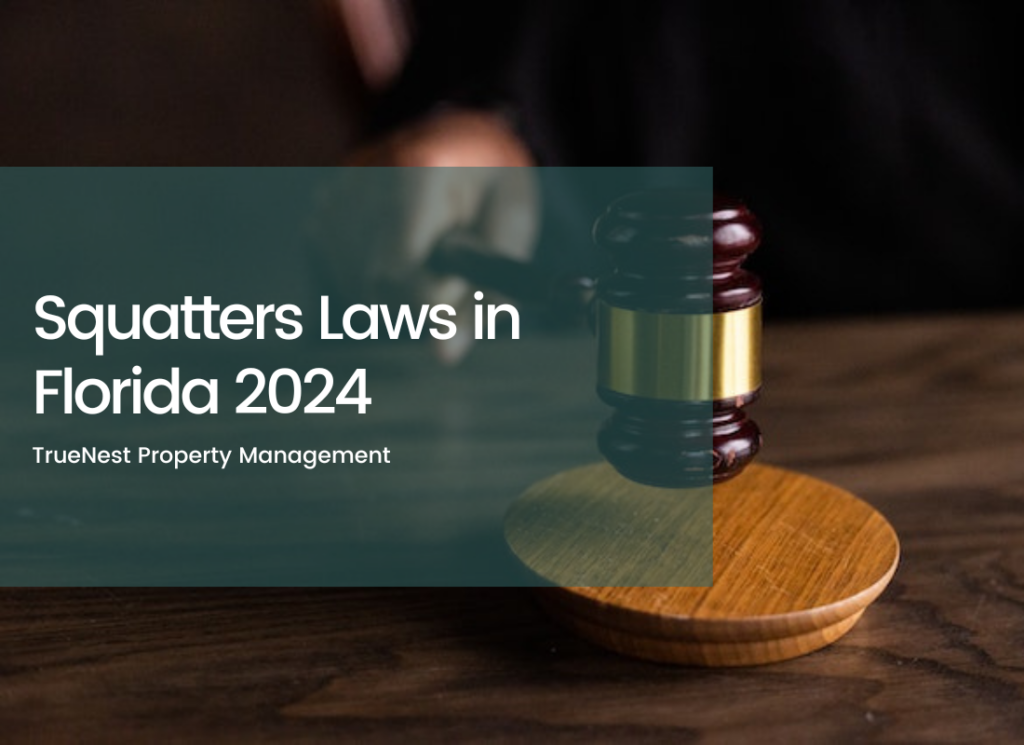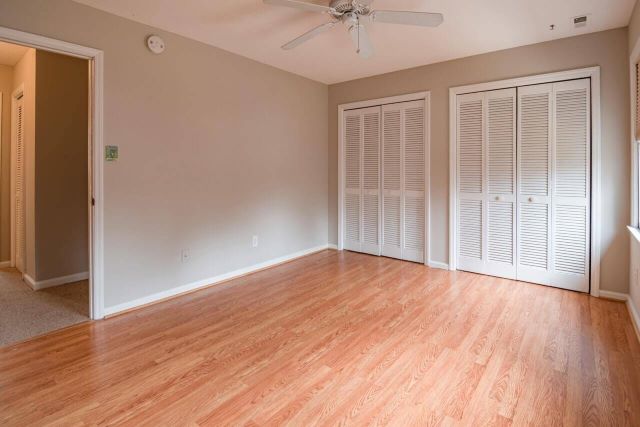Squatters Laws in Florida 2024

Are you a landlord in Florida concerned about protecting your property from unauthorized occupants? With the new Squatters Laws coming into effect on July 1, 2024, it’s crucial for property owners like you to understand the legal landscape and how it impacts your rights.
This article provides a clear, straightforward guide to the latest changes in Florida’s squatter laws, designed to help you safeguard your investment more effectively. Let’s dive into what these changes mean for you and how you can benefit from them.
Defining Squatters and Their Impact on Properties
Squatters are individuals who occupy a property without the legal right or explicit permission from the owner. This is common in properties that appear vacant or abandoned, lacking active management.
Squatters may reside temporarily or attempt to establish permanent residence, sometimes even seeking legal ownership through adverse possession.
Their presence can lead to complicated legal challenges concerning property rights. It’s vital for property owners to be vigilant and proactive in managing their properties to avoid potential disputes.
Overview of Previous Squatter Laws
Before we delve into the changes introduced by Florida’s 2024 squatter laws, it’s essential to understand the previous legal framework that governed such situations.
Previously, Florida provided a comparatively lenient environment for squatters, which allowed individuals to take up residence in vacant, abandoned, or unmonitored properties without the owner’s explicit permission.

Central to the old legal framework was the concept of “adverse possession.” This law enabled squatters to potentially claim legal ownership of a property if they lived there continuously for a seven-year period under specific conditions. For a squatter’s possession to qualify for adverse possession, it had to be:
- Open: The squatter’s presence on the property was apparent and not hidden.
- Notorious: Their occupation was evident and obvious to anyone who took notice.
- Exclusive: The property was not occupied or claimed by others during the period.
- Continuous: The squatter resided on the property for the entire seven years without interruption.
- Accompanied by Property Improvement: The squatter had to maintain or improve the property, demonstrating investment and care.
Payment of property taxes by the squatter was often required to bolster their claim. This legal structure was intended to promote the efficient use of land. However, it also created significant challenges for property owners who were not fully aware of these legal nuances, sometimes leading to unexpected and complex ownership disputes.
Understanding this previous framework helps clarify the reasons behind the changes made in 2024, aiming to protect property owners more effectively and prevent potential legal battles over property rights.
Florida’s Revised Squatter Laws in 2024
Governor Ron DeSantis signed a new law (HB 621) on March 28, 2024, making it easier for property owners to deal with squatters.

Here’s what’s new:
Prompt Relief for Property Owners
The new law allows property owners affected by squatting to submit a specific form to their local sheriff, who is then required to remove the illegal occupants quickly. This streamlined approach is designed to provide immediate relief and reduce the duration of unauthorized stays.
Updated Penalties for Squatters
Squatters causing significant property damage can now face more severe consequences. For example:
- Intentional damage exceeding $1,000 may result in second-degree felony charges.
- Fraudulently selling or leasing a property can attract first-degree misdemeanor charges.
- Individuals who knowingly advertise a property for sale or rent without authorization will be subject to a first-degree felony charge.
Specific Conditions for Squatter Removal
The new law specifies conditions under which squatters can be removed, ensuring landlords have solid legal ground to reclaim their property. Key conditions include:
- Unauthorized entry and continued presence on the property by the individual.
- The individual has received instructions from the owner to vacate the premises but has failed to comply.
- The individual is not involved in any legal dispute as a current or former tenant.
Understanding these conditions will empower you as a landlord to act decisively and legally against unauthorized occupants.
Tips To Prevent Squatting on Your Property
To prevent squatting on your property, implementing practical and proactive steps is crucial. Here are some straightforward strategies that can help you keep your property secure:
- Regular Inspections: Visit your property regularly to check for signs of unauthorized entry or occupation. This shows that the property is monitored and cared for, which can deter squatters.

- Secure Entrances: Ensure all doors, windows, and other entry points are securely locked and maintained. Repair any damages to these entry points promptly to prevent easy access.
- Install Security Measures: Consider installing security cameras, alarm systems, and motion sensor lighting around the property. Visible security features can act as a strong deterrent to squatters.
- Manage Vacancies Actively: Try to minimize the duration your property is vacant. If a property is expected to be empty for an extended period, consider temporary uses like short-term rentals or having a caretaker live on-site.
- Build Good Relationships with Neighbours: Neighbors can be invaluable in watching over your property when you are not around. They can report suspicious activity or alert you to potential squatters.
- Maintain the Property: Keep the property clean and well-maintained. An unkempt property is more attractive to squatters as it often signals neglect. Regular maintenance like mowing the lawn and removing trash can signal active management.
Before You Go
As we wrap up our discussion on the updated Squatters Laws in Florida for 2024, it’s clear that being proactive and well-informed is your best defense against unauthorized occupants.
Managing property effectively can be challenging, but you don’t have to do it alone. Partnering with a dedicated property management company like TrueNest Property Management can offer you peace of mind.
TrueNest Property Management provides expert guidance and robust support, ensuring your properties are well-protected and profitably managed. Reach out to us today and secure your investment with a team that cares about your success.
